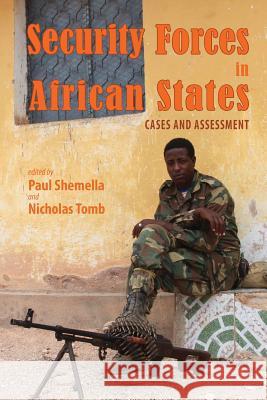Security Forces in African States: Cases and Assessment » książka
Security Forces in African States: Cases and Assessment
ISBN-13: 9781604979817 / Angielski / Miękka / 2017 / 294 str.
Of the key factors contributing to the poverty, political instability, and conflict in many African states, dysfunctional security institutions--both military and law enforcement-- often have the greatest negative impact because of their deep resourcing, heavy armament, and political backing and motives. Security Forces in African States has been created to help policy-makers and security practitioners overcome these impediments to the building of vibrant, safe, and secure societies in any African country or, indeed, in any country. It will also serve as a textbook for any student at any level seeking to understand Africa's security institutions and their successes and failures. Believing that -good governance- in such states can be achieved only when national security institutions are properly trained and resourced, the authors in this volume set out to establish how a family of failing security institutions can be reformed and constrained--and they provide a detailed guide to instituting such reforms. All the contributors are senior practitioners in the CCMR Africa Program at the Naval Post Graduate School who work with African leaders at the strategic level to promote democratically elected civilian control of the armed forces, and to develop effective and efficient militaries, police, courts, and governmental institutions. In order to merge theory and practice in a way that is both intellectually illuminating and universally useful, editors Paul Shemella and Nicholas Tomb began this project by providing a set of analytical tools to guide case study authors in their assessments of specific country cases and to ensure uniformity of rigor and exposition. Security Forces in African States: Cases and Assessment is an important, much-needed resource that helps redefine how African governments can improve the governance and capacity of their security institutions. The book is intended for students, scholars, and practitioners--both Western and African. *This book is part of the Rapid Communications in Conflict and Security (RCCS) Series (General Editor: Geoffrey R.H. Burn).











